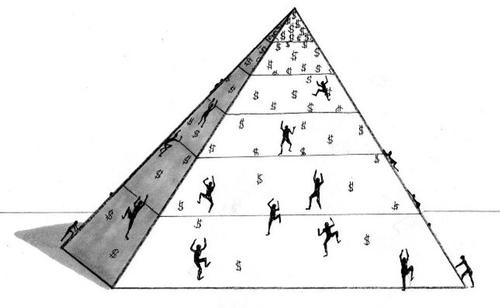Merit, Schmerit! Pending Illinois Law Will Change ‘Affirmative Action’ To ‘Positive Action’ And Cover Everything
Authored by Mark Glennon via Wirepoints.org,
How about we expand preferences in hiring and promotion to base them on any characteristic whatsoever that might disadvantage somebody, regardless of whether the characteristic is inherited or self-inflicted?
That’s in a bill moving full steam ahead in Springfield and it’s a doozy. It’s House Bill 3914, the Positive Action Act. It already passed the Illinois House and is moving in the Senate.
It would have state agencies give hiring preference to anybody with a “protected characteristic.” The bill’s definition of that term is the key. It includes “any characteristic which may be used, either directly or indirectly, to discriminate against or place at a disadvantage such persons having that characteristic.”
So, it’s not just involuntary traits like race or gender, it’s anything that would disadvantage somebody, even if self-imposed. Anything.
As you think about examples of how absurd this is, it’s important to remember this is not about nondiscrimination. It’s about creating new preferences for anybody with a “protected characteristic.”
Consider, for example, people who are obese, short or unattractive. You probably think, as I do, that they usually should not be discriminated against in hiring and promotions.
But giving them a special preference is an entirely different matter, and that’s what the bill would do. Obesity, shortness and unattractiveness all fit under the bill’s definition of “protected characteristics.” It’s easy to find research confirming that those traits are penalized in the labor market. Some of that research was discussed in a New York Times article here.
To make the point, that article says Gregory Mankiw, an economist at Harvard and the former chairman of the Council of Economic Advisers, facetiously proposed taxing taller people more, since someone 6 feet tall can be expected to earn $5,525 more a year than someone who is 5-foot-5.
Mankiw was kidding but the bill is no joke. It’s serious about essentially the same concept, but far more broad.
Or what about applicants who are unintelligent, even those who are so because they haven’t been motivated enough to educate themselves? And what about those who simply lack experience? They, too, generally fare poorly in the labor market and those traits also fit within the definition of “protected characteristics.” The bill would call for them to get a preference over those who are smarter or more experienced, and no distinction would be made if those traits stemmed from simple lack of effort.
The bill does include one supposed limitation. It does not apply if the characteristic makes the person less qualified than other applicants. Specifically, the bill says that favorable consideration in the process of recruitment or promotion shall only be allowed if “the person having the protected characteristic is as qualified as the person not having the protected characteristic.”
But that’s all the bill says on this and that’s not much of a limitation.
For one thing, traits like intelligence, education and experience often only bear on qualification up to a certain point, especially for entry-level and low-skill jobs. The “as qualified as” standard therefore often loses any meaning.
Moreover, even beyond those circumstances, if the limitation were really meant to have meaning, it would contradict the clear purpose of the bill. Is the point to hire the most qualified person under all circumstances or to give a preference to others? Obviously, the purpose of the bill is to provide preferences and override blind selection based on qualifications and merit, so that’s how it would be interpreted and applied.
Another fundamental problem with the bill is that its concept of protected characteristics is impossibly vague. Countless traits arguably disadvantage some people in life, but the bill would call for state agencies to identify those traits and reward them. It’s important to note that the definition of protected characteristics is not limited to traits related to the job at issue. Any trait that makes life worse in or out of the workplace can be covered by the bill.
Beyond authorizing special preferences, the bill requires all agencies to “take positive action” to help those with protected characteristics and submit reports on their “positive action” progress.
The bill amends some 50 existing statutes to replace the term “affirmative action” with “positive action.”
Finally, the bill would require each state agency to perform an internal examination to identify all “eugenics-inspired policies” and other policies with a discriminatory impact, and issue an annual report to the Governor and the General Assembly.
Props to McHenry County Blog for calling this bill to our attention.
Tyler Durden
Mon, 05/10/2021 – 09:02
via ZeroHedge News https://ift.tt/33w3Msk Tyler Durden
